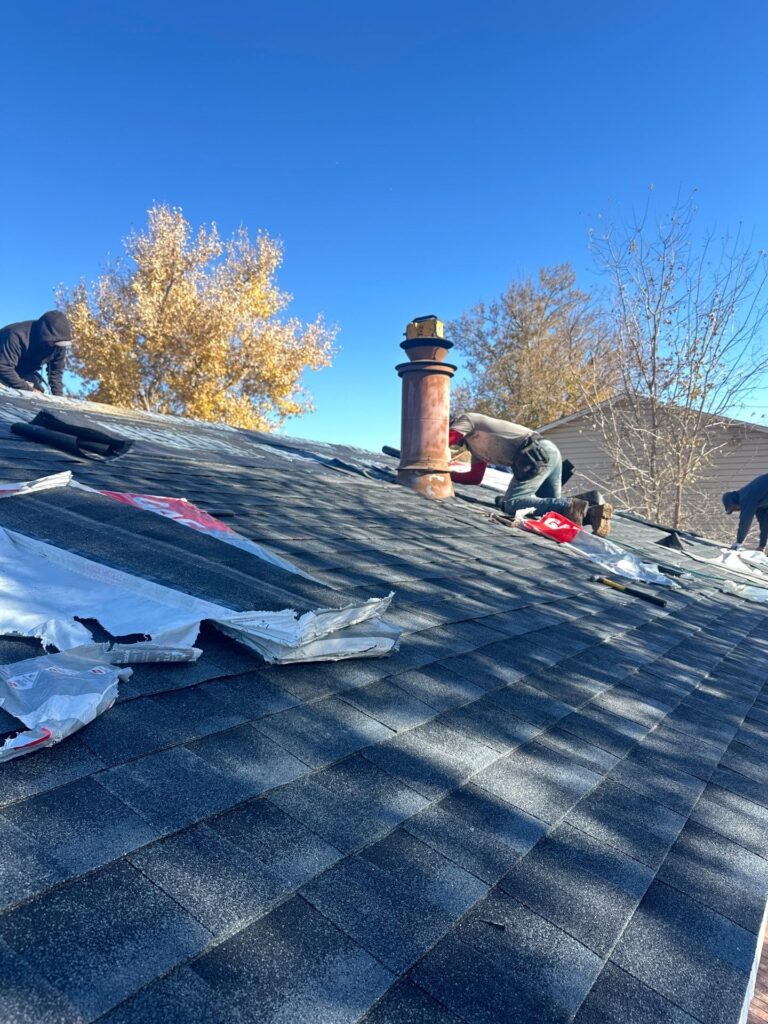Colorado’s climate is notorious for unpredictable hailstorms, which can wreak havoc on your roof if not properly prepared. As Denver residents face hail ranging from pea-sized pellets to golf ball-sized ice chunks, understanding how to safeguard your roof is crucial. Here, we detail actionable steps to protect your home from hail damage, ensuring durability and peace of mind.
Understand the Risks of Hail Damage
Hailstorms can severely compromise your roof’s integrity, leading to costly repairs if ignored. Even small hailstones can erode roofing materials over time, especially if your roof isn’t constructed with impact-resistant materials. High winds that accompany hail exacerbate the issue, dislodging shingles and scattering granules, visible on your driveway or yard after a storm.
Invest in Durable, Hail-Resistant Roofing Materials
Opting for roofing materials designed to withstand impact is one of the best defenses against hail damage. Products classified under UL 2218, Class 4 impact resistance, are designed to withstand hail’s force. Common materials include:
- Metal Roofing : Durable and capable of withstanding large hailstones.
- Asphalt Shingles with Polymer Additives : These enhance flexibility and resilience.
- Concrete or Clay Tiles : Ideal for minimizing damage in severe storms.
When upgrading your roof, ensure it complies with Colorado’s local building codes to maximize protection.
Conduct Routine Roof Assessments
Regular roof evaluations, particularly ahead of and after hail season, are crucial for maintaining its integrity. Professional roofers in Denver can identify vulnerabilities such as:
- Cracked or curled shingles
- Missing granules on shingles
- Compromised flashing or sealants
Scheduling an annual inspection ensures minor issues don’t escalate into significant problems during hail season.
Install Roof Protection Accessories
Enhance your roof’s defense against hail with additional accessories:
- Roof Overhang Protection : Reinforce overhanging areas vulnerable to uplift in high winds.
- Hail Guards for Gutters and Vents : Prevent clogging and ensure proper drainage.
- Hurricane Clips : Strengthen connections between roof components to minimize damage.
Maintain Landscaping Around Your Home
Trim overhanging branches and maintain a clear perimeter around your roof. Falling branches during storms can puncture or damage shingles, compounding hail-related issues.
Verify Your Insurance Policy for Hail Damage
Review your homeowner’s insurance plan to ensure it includes protection against hail-related issues. Document your roof’s condition with photos and detailed reports from a licensed roofer before hail season begins. These records expedite claims if damage occurs.
Partner with Trusted Local Roofing Experts
For comprehensive protection, work with experienced Denver roofers who understand the region’s unique weather challenges. Tried and True Roofing, a leading roofing company in Denver, specializes in preparing homes for Colorado’s harsh hailstorms. Their expertise ensures your roof is equipped to handle the elements effectively.
Respond Quickly After a Hailstorm
After a hailstorm, take immediate action to minimize damage:
- Inspect Your Roof Safely : Look for visible signs of damage from the ground or with binoculars.
- Document the Damage : Photograph affected areas to assist with insurance claims.
- Contact a Professional : Avoid DIY fixes, as improper repairs can void warranties or worsen the issue.
Conclusion
Protecting your roof from Colorado’s hailstorms involves proactive measures such as selecting durable materials, scheduling inspections, and maintaining proper insurance coverage. By investing in preventative care and partnering with reliable Denver roofers, you can shield your home from costly hail damage and ensure long-term protection.


